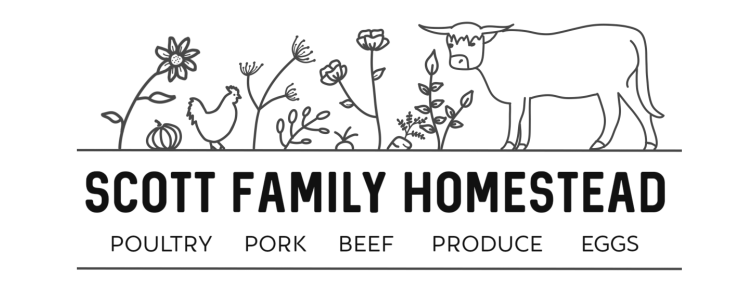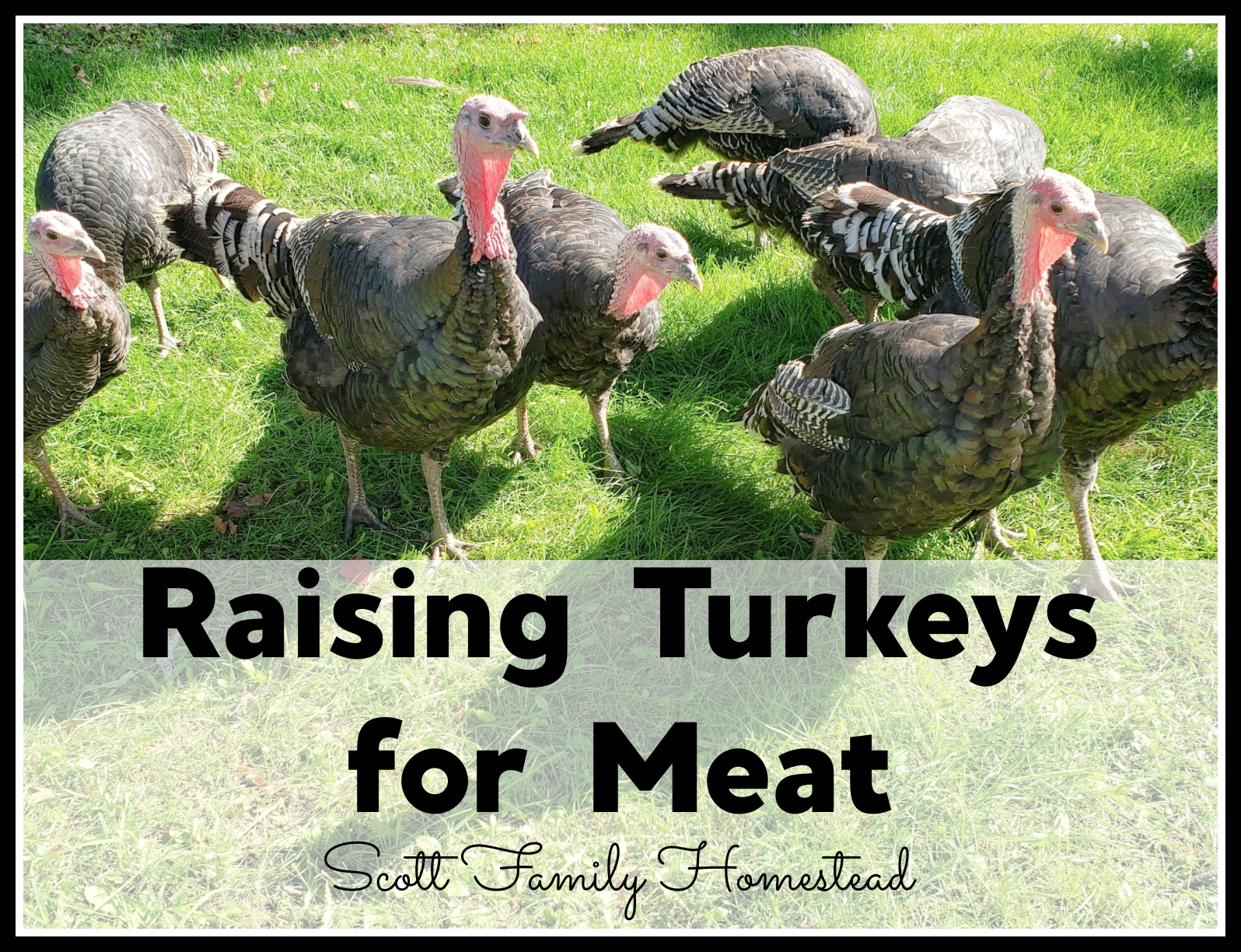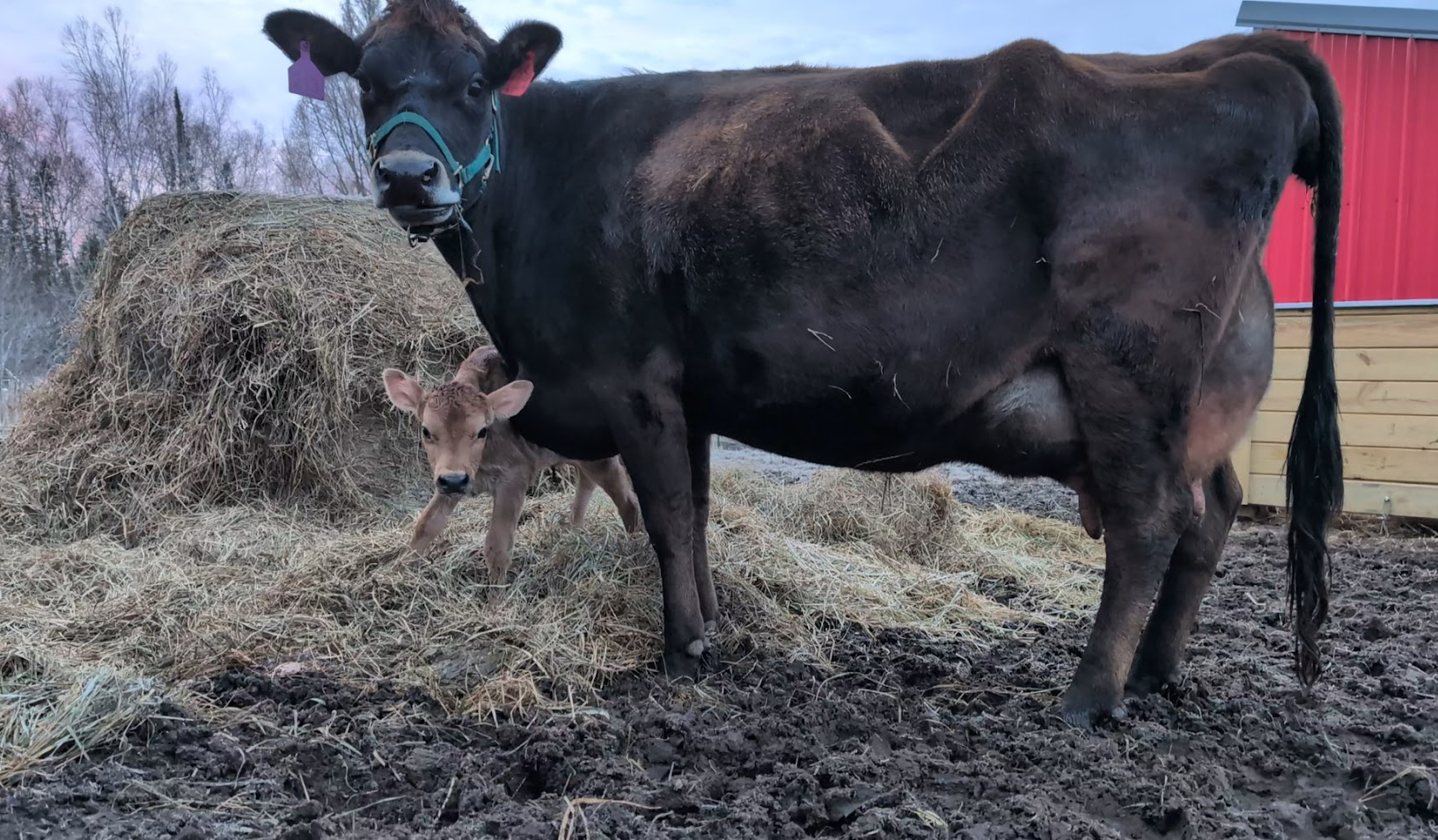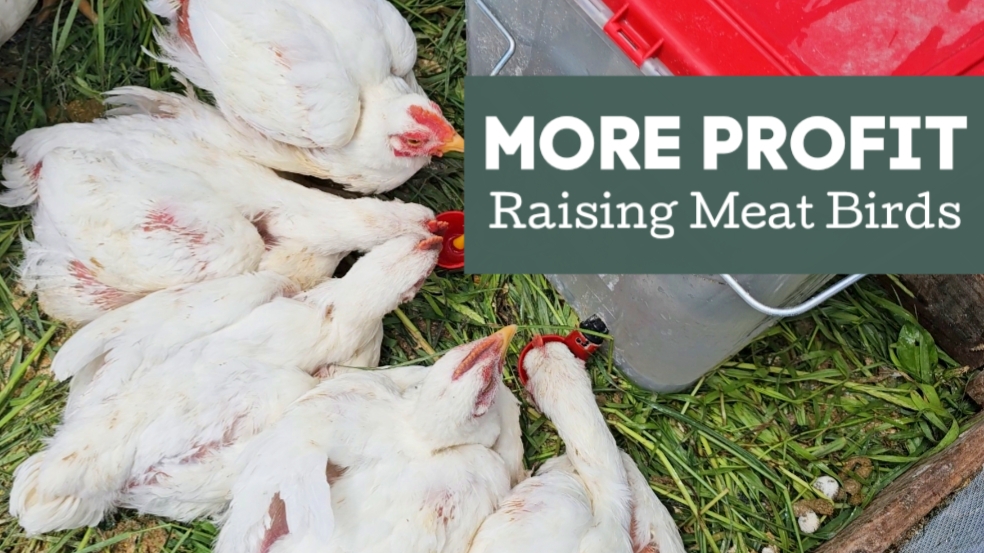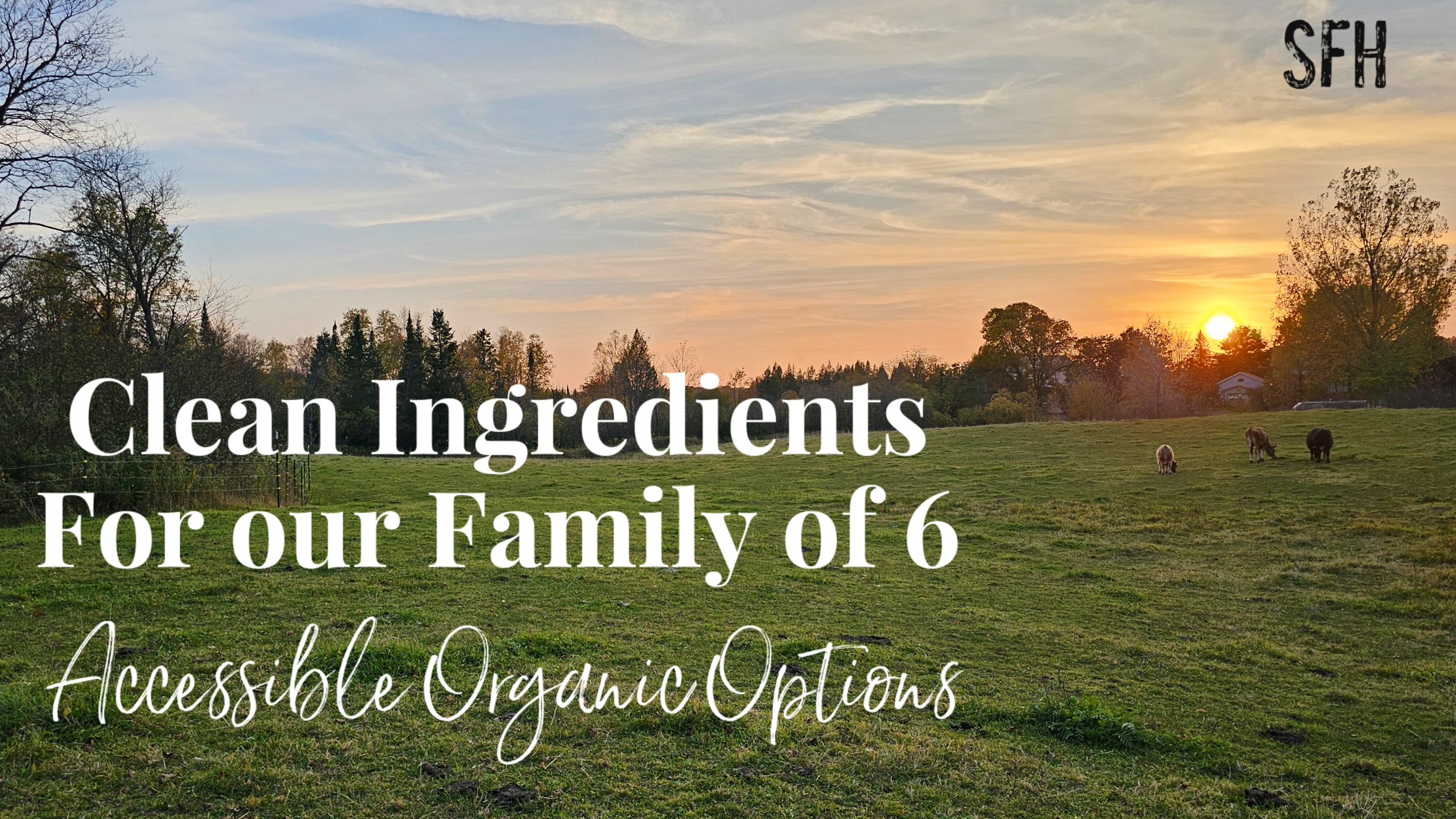*I may receive a small commission at no cost to you if you make a purchase from my affiliate links.
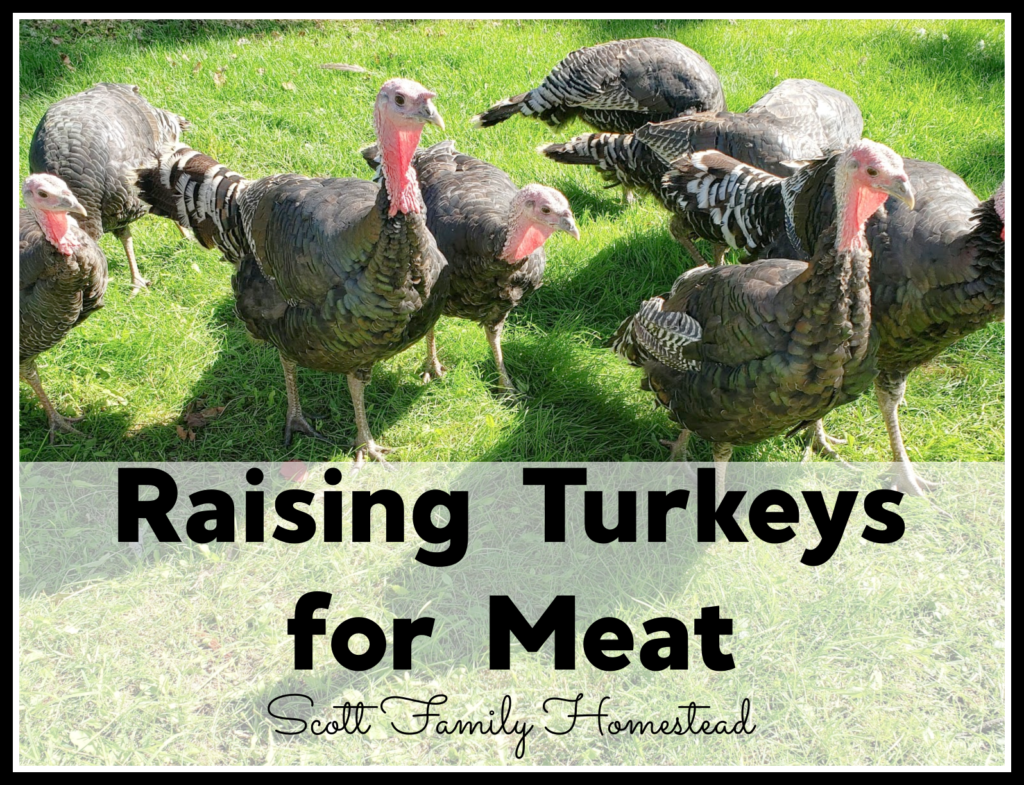
As part of our goal to raise the majority of our food, we added turkeys to our homestead. We’ve encountered a few problems and surprises in this journey. If you are looking to add a few turkeys, especially to be raised as meat, this post is for you!
We wanted to expand beyond meat chickens and egg layers but we weren’t quite ready for the commitment of a cow or pig. This is where turkeys are especially great. They are more of a commitment than meat chickens (they usually take about 20 weeks) but relatively low commitment overall. We live in such a cold place with significant amounts of snow, so we love to raise animals that are finished for the year come fall. Turkeys provide us with Thanksgiving dinner, turkey breasts, sandwich meat, and ground turkey as a replacement for beef. The bones can be made into an excellent broth. One turkey can provide many meals for our family.
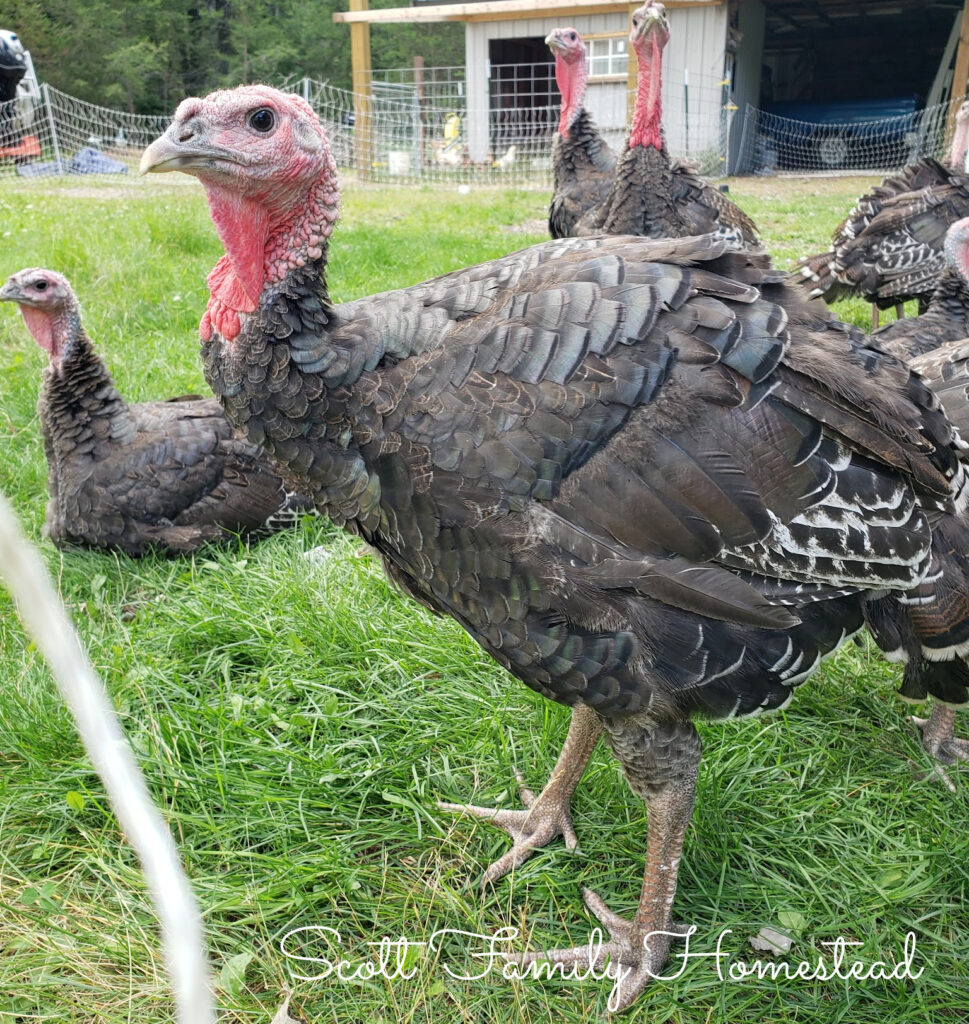
As much as we love them, the first time we tried to raise turkeys was a disaster. They shipped to us during a snowstorm (not the hatchery’s fault, just bad timing) and the stress killed several right away. Then we had a bear attack their tractor/coop when they were small and we lost all but one. We did buy a second round and lost half of those in the brooder, reasons completely unknown to us. We ended up with 7/16 that year and felt like total failures. Since then, we have learned a lot. We went into it with chicken raising knowledge, but there are a few things specific to turkeys to watch out for.
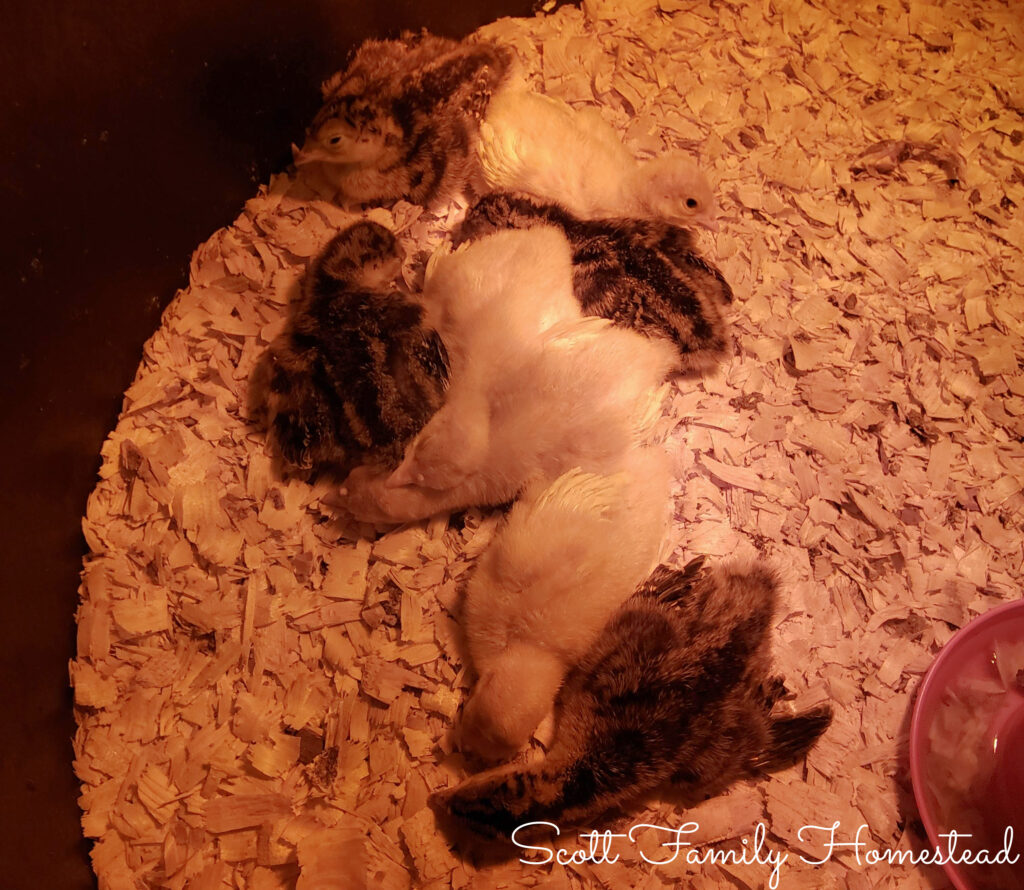
Turkeys can’t figure out how to drink water on their own. Great survival tactic, huh? When your turkeys arrive they need to be introduced to the water right away. Similar to chickens, you can dip their beak into the water to show them where they are. Unlike chickens though, you may need to hang around and make sure they actually understand. Observing turkey poults and their behavior can help you increase their chances at survival. They also like to lay completely limp, so don’t be too afraid when you walk up to a sight like the picture above. Make some noise and they will perk right up from their nap if they are healthy.
Turkey poults are very fragile when it comes to temperatures. If it gets cold they will crowd together and suffocate, or the cold can be too stressful on their bodies. They can’t be too warm and can’t handle temperature swings either. Basically, they are extremely picky about needing consistent warm temperatures in their brooder, about 95 degrees, and plenty of space to warm up and cool down.
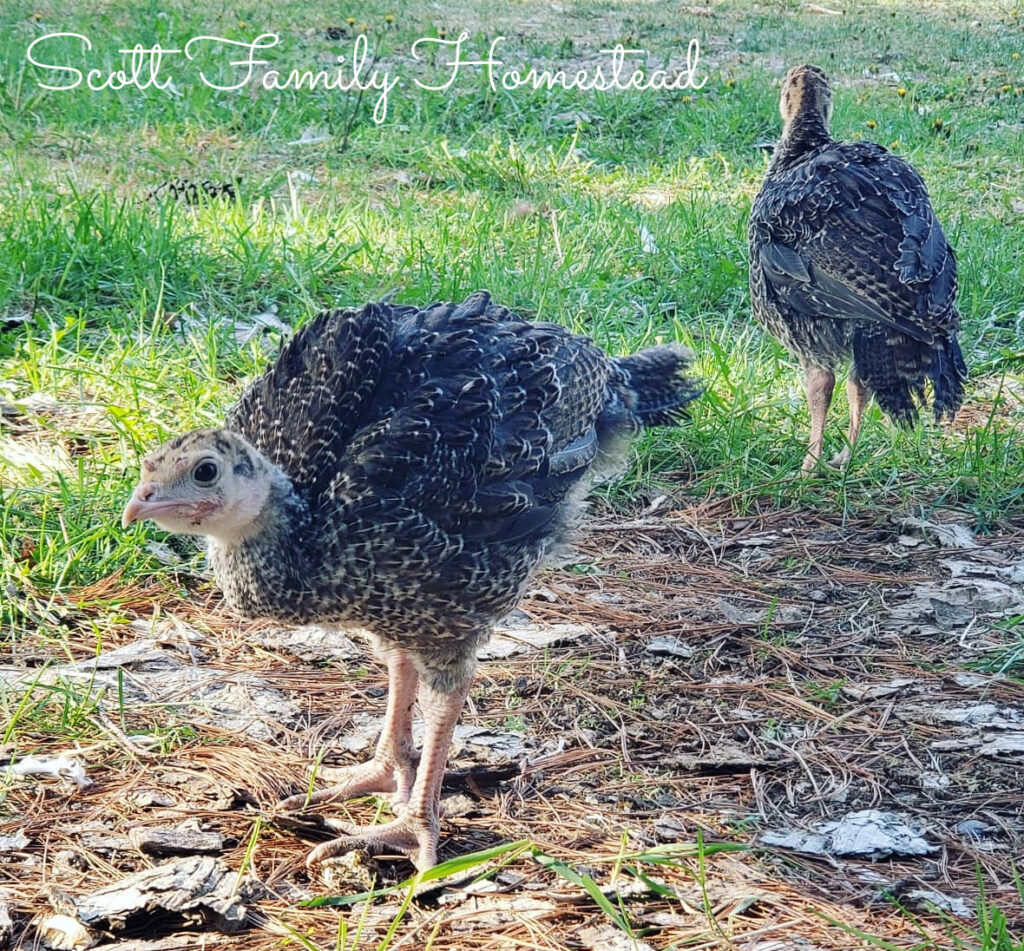
Obviously the bear attack wasn’t great, but even if it hadn’t completely crushed the coop, the stress of a predator would have been just as detrimental. Turkeys, especially at night, need a very secure coop and are very susceptible to stress. We have a fenced in backyard now, so after the brooder stage the turkeys get a tractor within the fenced yard until they are bigger. At about 2 months old they get a barn stall at night and an electric netting fenced pasture during the day.
We’ve been raising turkeys for a few years now and the sad truth is that sometimes they die and there is nothing you can do. Sometimes they arrive so stressed that they don’t really stand a chance. One thing that really helped us was finding a closer hatchery to order from so they weren’t in shipping so long and we handle them with more care than chickens in the first few days. Monitor them, watch them, and troubleshoot if possible.
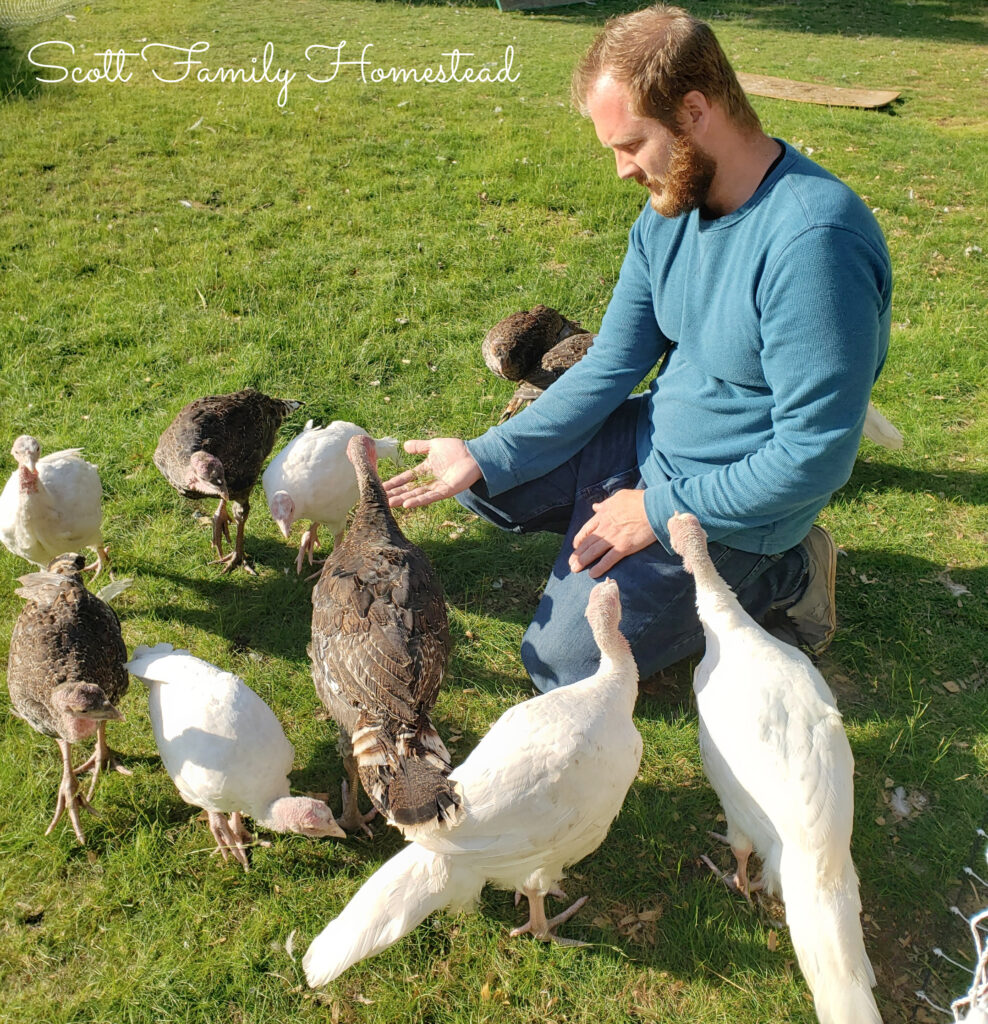
After the first week or so, they are so easy to raise. Feed, water, put up at night…that’s basically it! Turkeys eat wild game feed, different than a typical chicken feed. Keep their coop clean and watch them grow. They also love to eat slugs, bugs, and grass. The bronze breasted breed is very good at foraging. This is why we prefer the net electric fencing. We can move their pasture space and they keep our side yard mowed all summer long. The grass that comes back after they forage an area is also the best green grass we can grow. We have also grown broad breasted whites, which seem to get a bit bigger in the same amount of time. After about 20 weeks it is time to butcher these broad breasted meat breeds. Heritage breeds will have a different timeline.
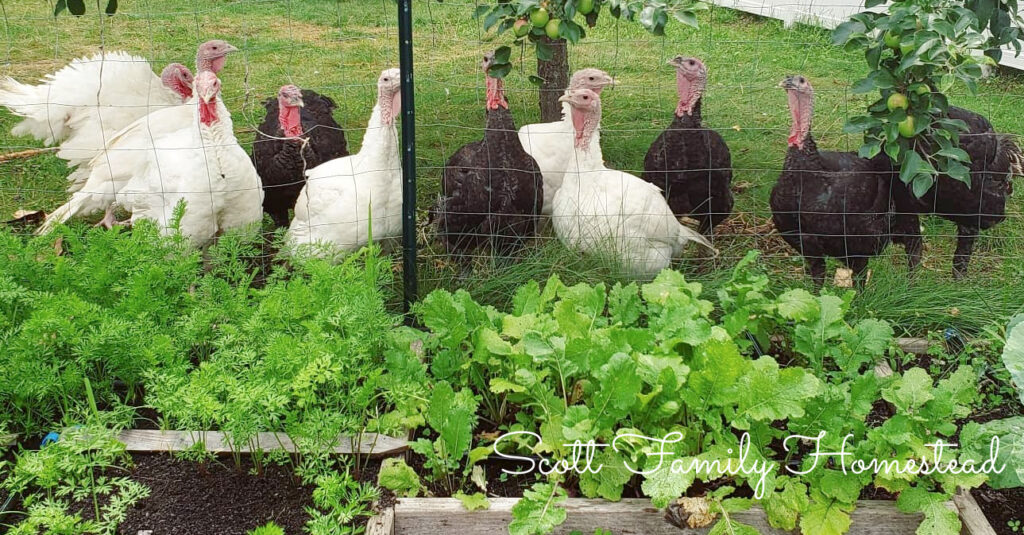
Overall, we love having turkeys as part of our homestead and we will likely continue to raise them every year. I hope I didn’t scare you away from the idea, but I do wish we had known what we know now and could possibly have had better success that first year. I’m happy to say this year 12/12 made it to butcher.
Have any questions? Ask in the comments below or join us on Instagram and Facebook for more information!
